Early childhood education courses in Singapore

Children – You love ‘em and they love you. You’re the first person your young nieces and nephews run to every time you visit, and you’re that one person who has the golden gift of making any crying baby smile.
This gift doesn’t have to go to waste. Take your affinity with the young’uns and turn it into a promising career. Here are some courses in early childhood education from the National Institute of Early Childhood Development (NIEC) to consider post GCE ‘O’ levels.
1. Get real-world experience through virtual reality
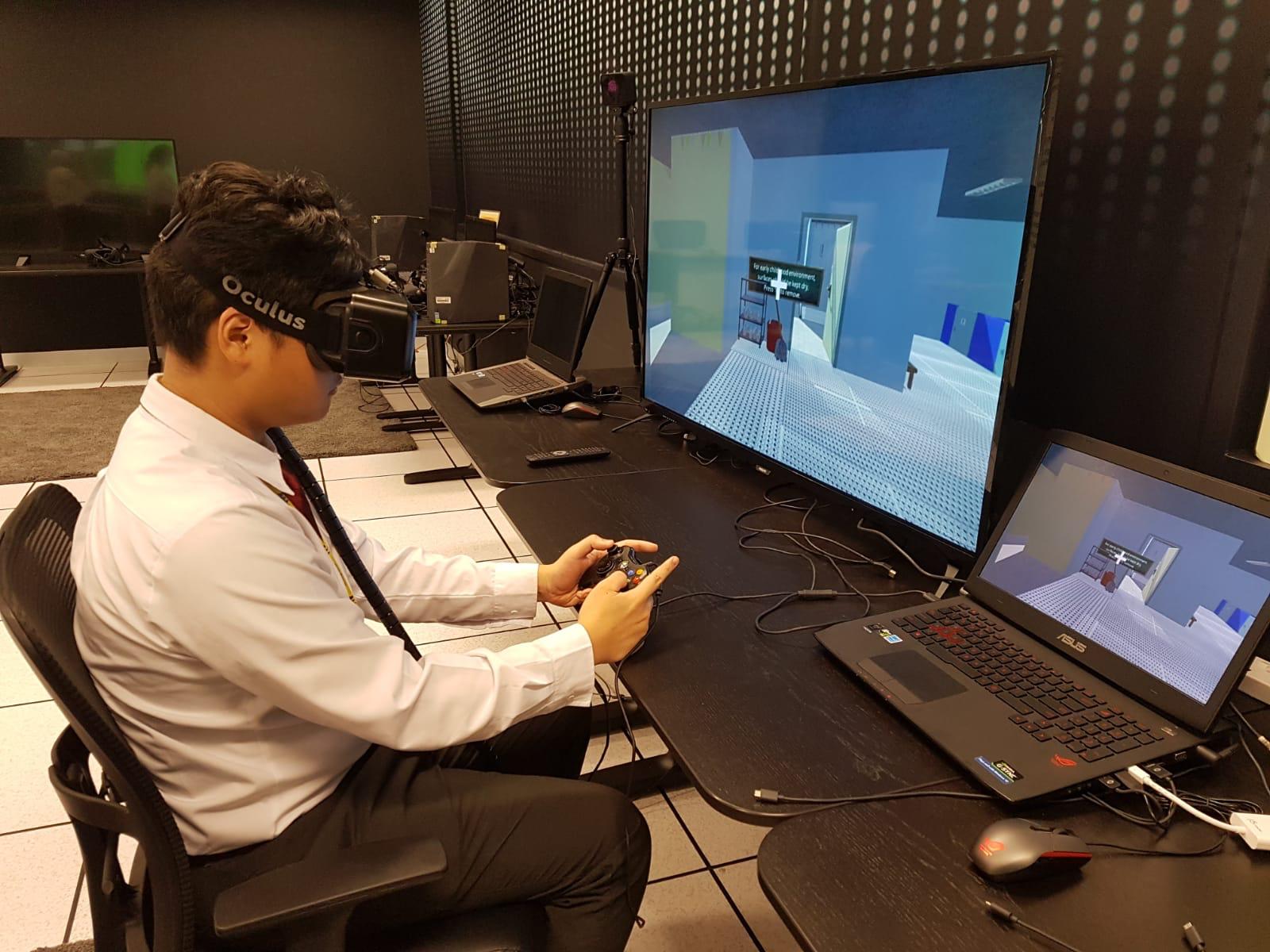
Image credit: NIEC
Technology has entered the classroom. In the Higher Nitec in Early Childhood Education course, there’s a module that’s partly conducted with virtual reality headsets. Students will enter a VR world of classrooms and playgrounds, and identify safety hazards in childcare environments.
This course ultimately prepares you to plan and implement activities in childcare centres professionally. Here, you’ll learn how to manage activities for children, and keep a lookout for their safety, health and nutrition.
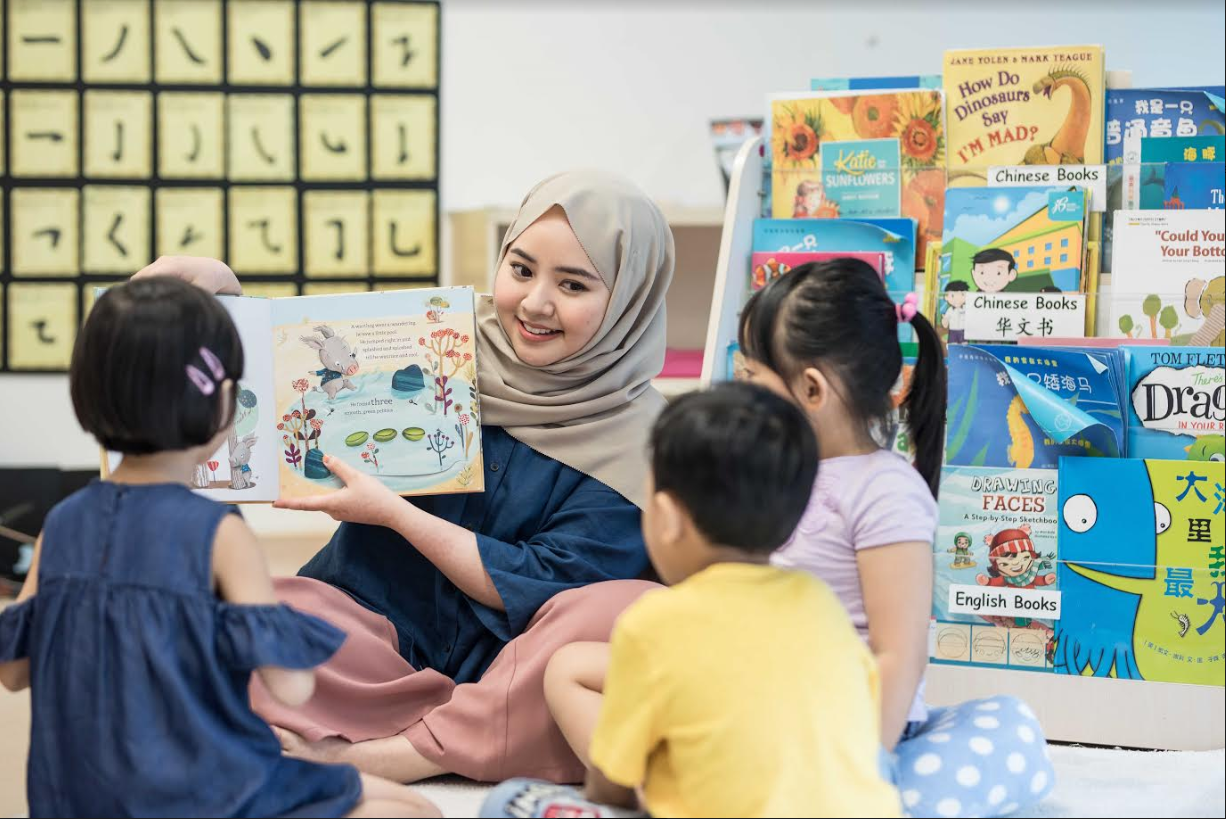
Image credit: NIEC
You’ll even be able to create your own teaching kit, as well as write, illustrate and produce your own books to make learning fun and interactive for young children.
Duration of study: 2 years
Campus: NIEC (Institute of Technical Education) campus
Upon graduation:
- You’ll obtain a Level 1 professional teaching qualification, which allows you to teach children aged 18 months to 4 years old in pre-nursery and nursery classes.
Find out more here.
2. Incorporate play and creativity into teaching
There’s no such concept of “all work and no play,” with the Diploma in Early Childhood Development & Education. In fact, much of this diploma specialises in using methods of play as an important tool in educating children in their early years.
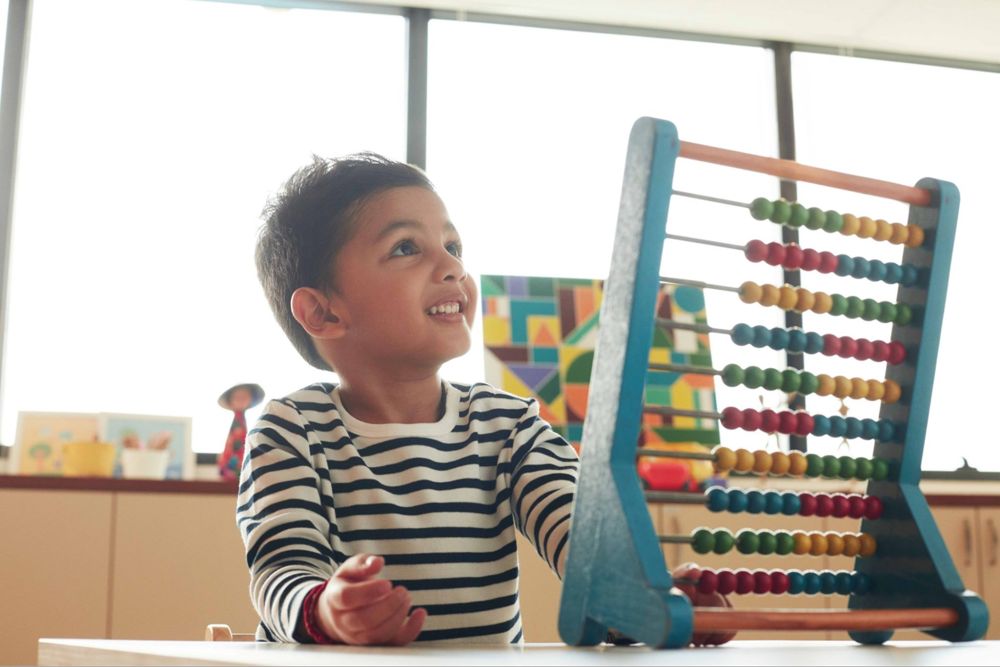
Image credit: NIEC
Of course, in order to teach something you’ll have to first experience it for yourself. You’ll learn how to devise lessons that revolve around movement and play for children while testing out these games. You can expect your days to be filled with learning facilities that involve lots of toys, games, musical instruments and sports equipment.
Another thing you can look forward to is regular practicums throughout the 3 years of study. These practicums get you acquainted with early childhood environments and they take place in actual establishments like preschools, even before you graduate.
Plus, you’ll get to work alongside experienced early childhood educators and gain first-hand experience in the industry from the get-go.
Duration of study: 3 years
Campus: NIEC (Ngee Ann Polytechnic) and NIEC (Temasek Polytechnic) campuses
Upon graduation:
- You’ll obtain a Level 2 professional teaching qualification, which allows you to teach children aged 18 months to 6 years old.
- You can also work in children-related industries like Play Therapy and Early Intervention, and Special Needs Education.
Find out more here.
3. Take part in running Tamil language programmes for children
Diploma in Tamil Studies with Early Education is another course to consider if you’ve always had a zeal for the language. Throughout this 3-year programme, students will assist in organising educational activities for children within the local Indian community such as the Annual Tamil Language Festival.
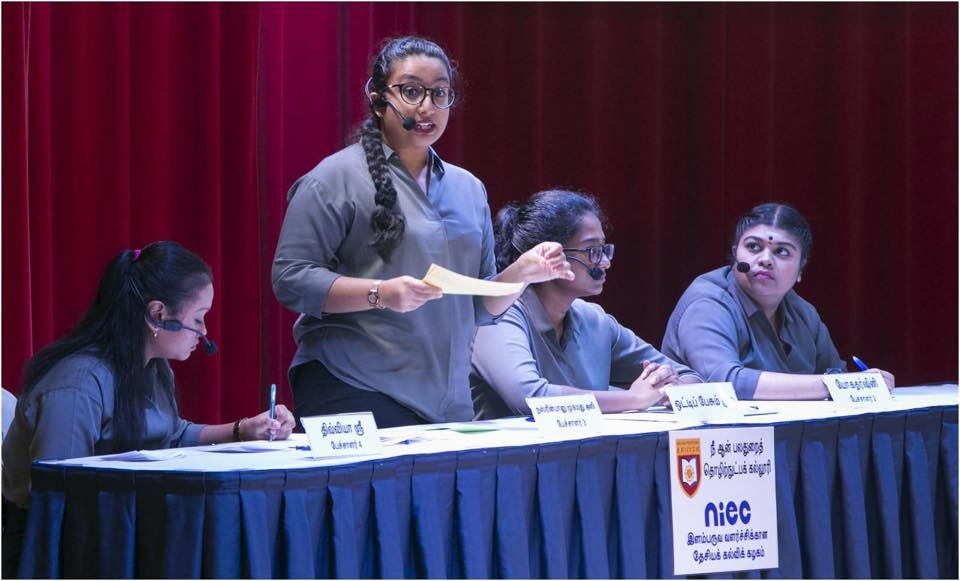
NIEC’s debate team from Diploma in Tamil Studies with Early Education at this year’s national Tamil debate contest
Image credit: NIEC
Expect plenty of immersive projects such as NLB’s Reading Ninja Porgramme, where students read stories to children in Tamil. In the past, students have also planned activities for the roving SINDA Bus which goes to primary schools to promote the Tamil language.
Duration of study: 3 years
Campus: NIEC (Ngee Ann Polytechnic) campus
Upon graduation:
- You’ll obtain a Level 2 professional teaching qualification, which allows you to teach children aged 18 months to 6 years old.
- You will also be certified as a Tamil Language preschool teacher.
- You may also apply to MOE to be a primary school Tamil Language teacher if you meet MOE’s criteria.
Find out more here.
4. Hone your Chinese language skills
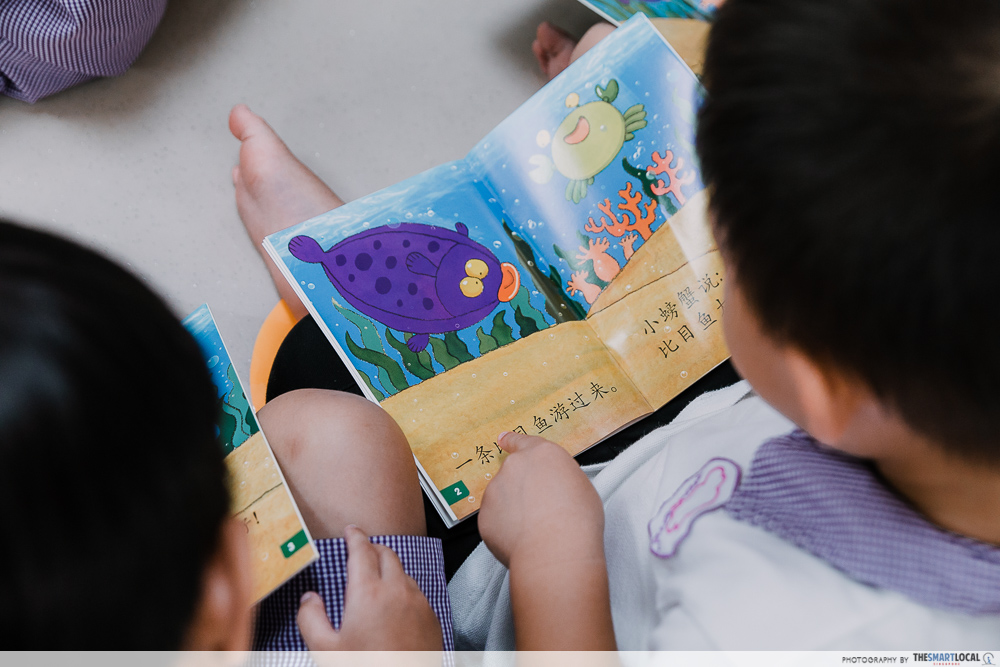
If Mandarin is your mother tongue and you’re passionate about it, you’ll have an added bonus of developing your own language skills with a Diploma in Chinese Studies (Early Childhood Teaching). Branch out to an Early Childhood Teaching track in your 2nd year to learn about child development, curriculum planning and design for preschool education.
For an all-round immersion in Chinese culture, more than half of the course is conducted in Mandarin. You’ll be able to pick up calligraphy skills and learn how to play traditional Chinese instruments. And you won’t be cooped up indoors either: the course includes field trips to cultural sites in Singapore like the Singapore Chinese Opera Museum.
Duration of study: 3 years
Campus: NIEC (Ngee Ann Polytechnic) campus
Upon graduation:
- You’ll obtain a Level 2 professional teaching qualification, which allows you to teach children aged 18 months to 6 years old.
- You will also be certified as an early childhood Chinese Language teacher.
Find out more here.
Pursue a career in early childhood education
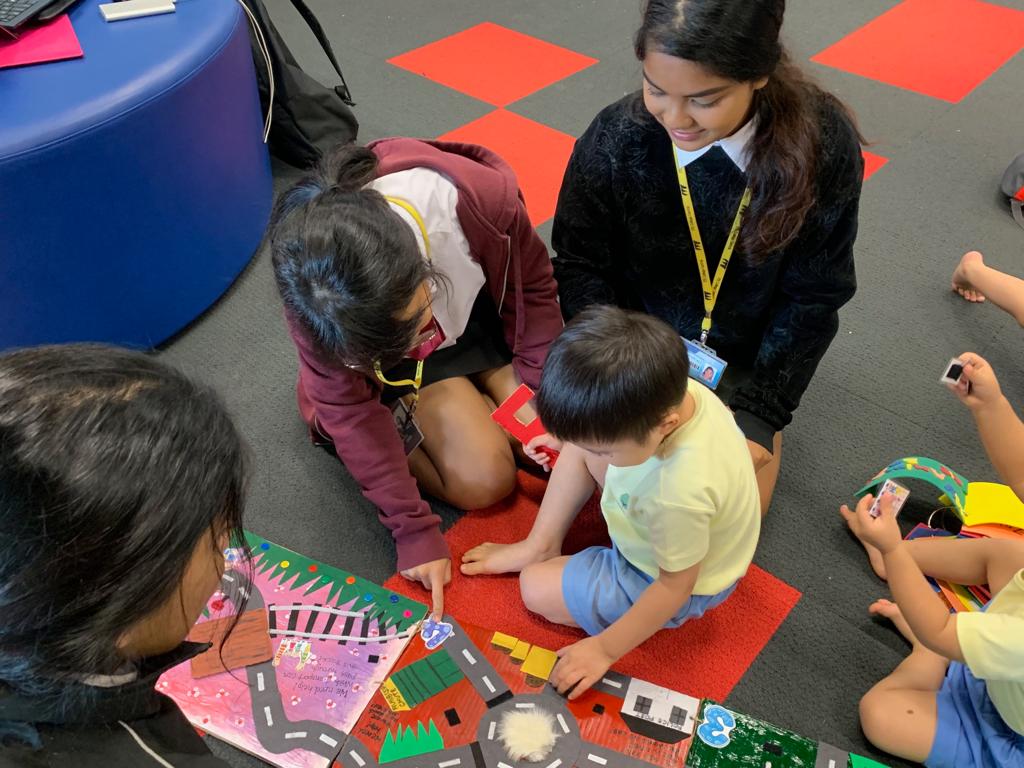
Image credit: NIEC
If you’ve got a way with children and want to pave the way for the youngest generation of Singapore, check out these courses to see what suits you best. You don’t have to wait for your GCE ‘O’ level results to apply. Those who already know that early childhood (EC) education is for them can secure a spot for an EC diploma or Higher Nitec course with an Early Admissions Exercise (EAE).
Students will be given a conditional offer which means they’ll have to meet the requirements of the respective courses when they receive their GCE ‘O’ level results.
Here’s some insight into the selection process:
- Students will be shortlisted based on their application via the EAE portal, which can be a course-related write up, or a talent or achievement write up.
- You’ll be interviewed in a group, by a faculty panel from NIEC, who will assess whether you have suitable traits to be an EC educator. This stage will also involve a group task to see if you’re able to work in a team.
- Bring along your portfolio, including any academic certs and testimonials that showcase your passion for working with children.
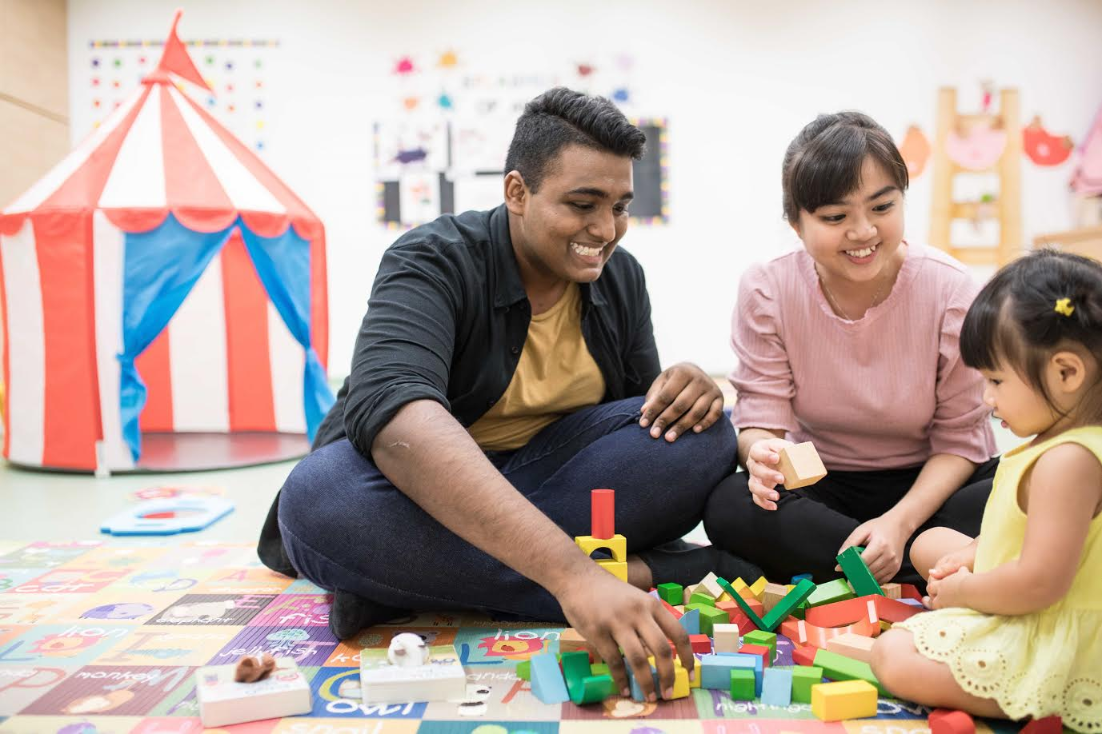
Image credit: NIEC
Application for early admission into NIEC’s diploma courses for ‘O’ level students is from 27th June to 3rd July 2019, so you can get a head start on securing a future in early childhood education.
Find out how to become an early childhood educator here
This post was brought to you by Early Childhood Development Agency.

Drop us your email so you won't miss the latest news.










